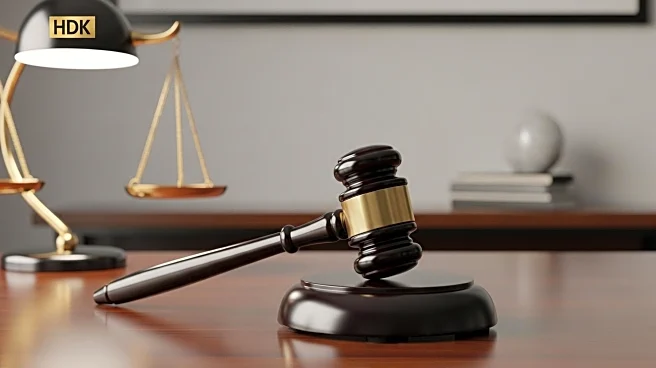What is the story about?
What's Happening?
A federal judge in Minnesota has ruled that MyPillow founder Mike Lindell defamed Smartmatic, an election technology company, by making false statements about its voting machines in relation to the 2020 presidential election. The ruling by U.S. District Judge Jeffrey Bryan identified 51 instances where Lindell falsely claimed that Smartmatic's machines were used to rig the election results in favor of Joe Biden over President Trump. These claims were made through documentaries, media appearances, and personal statements. However, the judge deferred the decision on whether Lindell acted with 'actual malice,' which Smartmatic must prove to collect damages. Lindell maintains that he believes his statements were truthful, despite the court's findings.
Why It's Important?
This ruling is significant as it underscores the legal consequences of spreading false information about election integrity, a topic that has been highly contentious in U.S. politics. The case against Lindell is part of a broader legal battle involving election technology companies like Smartmatic and Dominion Voting Systems, which have faced numerous false claims about their role in the 2020 election. The outcome of this case could impact how misinformation is addressed legally and may influence public trust in election processes. Smartmatic's pursuit of 'nine-figure damages' highlights the potential financial repercussions for those who propagate falsehoods about election technology.
What's Next?
Smartmatic plans to seek substantial damages from Lindell and MyPillow for the defamation. Lindell has expressed his intention to continue his fight against voting machines, advocating for a return to paper ballots, and is prepared to take his case to the U.S. Supreme Court if necessary. Additionally, Lindell has indicated a possible run for governor in Minnesota, which could further complicate his legal and political endeavors. The ongoing legal challenges faced by Lindell and MyPillow may continue to affect their business operations and public image.
Beyond the Headlines
The case against Lindell reflects broader issues of accountability in the dissemination of misinformation, particularly in the context of elections. It raises questions about the balance between free speech and the responsibility to avoid spreading falsehoods that can undermine democratic processes. The legal actions taken by companies like Smartmatic and Dominion Voting Systems may set precedents for how similar cases are handled in the future, potentially influencing the legal landscape regarding defamation and misinformation.

















